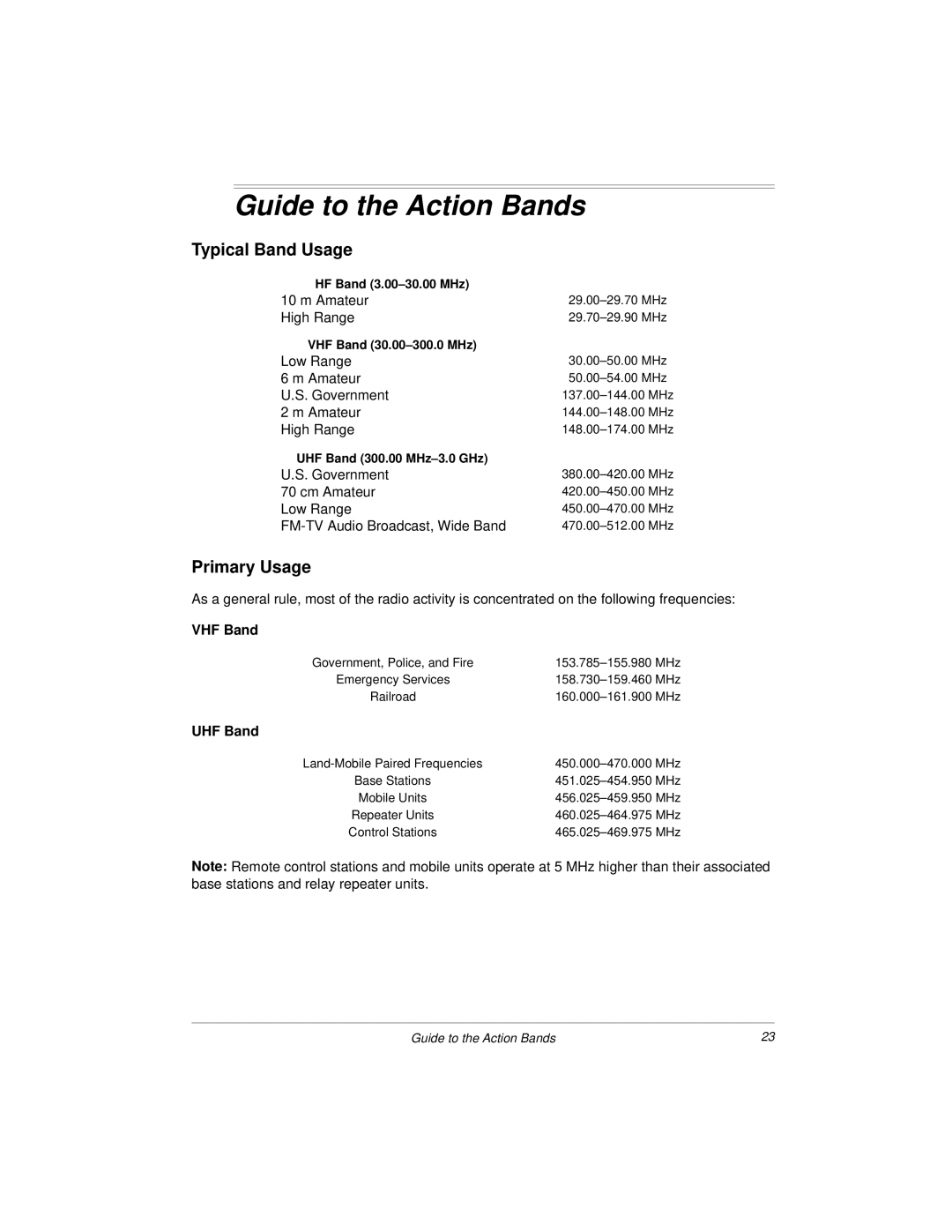
ˆGuide to the Action Bands
Typical Band Usage
HF Band |
|
10 m Amateur | |
High Range | |
VHF Band |
|
Low Range | |
6 m Amateur | |
U.S. Government | |
2 m Amateur | |
High Range | |
UHF Band (300.00 |
|
U.S. Government | |
70 cm Amateur | |
Low Range | |
Primary Usage
As a general rule, most of the radio activity is concentrated on the following frequencies:
VHF Band
Government, Police, and Fire | |
Emergency Services | |
Railroad |
UHF Band
Base Stations | |
Mobile Units | |
Repeater Units | |
Control Stations |
Note: Remote control stations and mobile units operate at 5 MHz higher than their associated base stations and relay repeater units.
Guide to the Action Bands | 23 |
